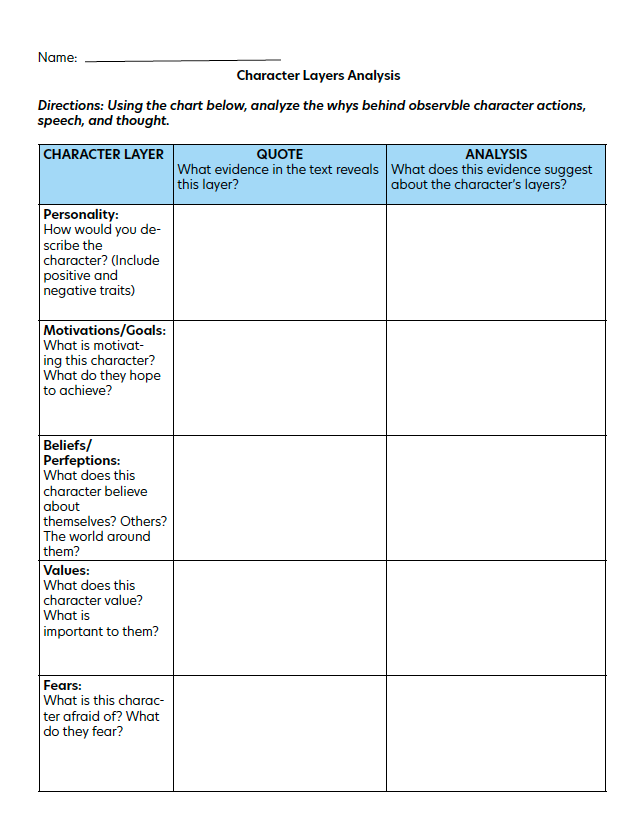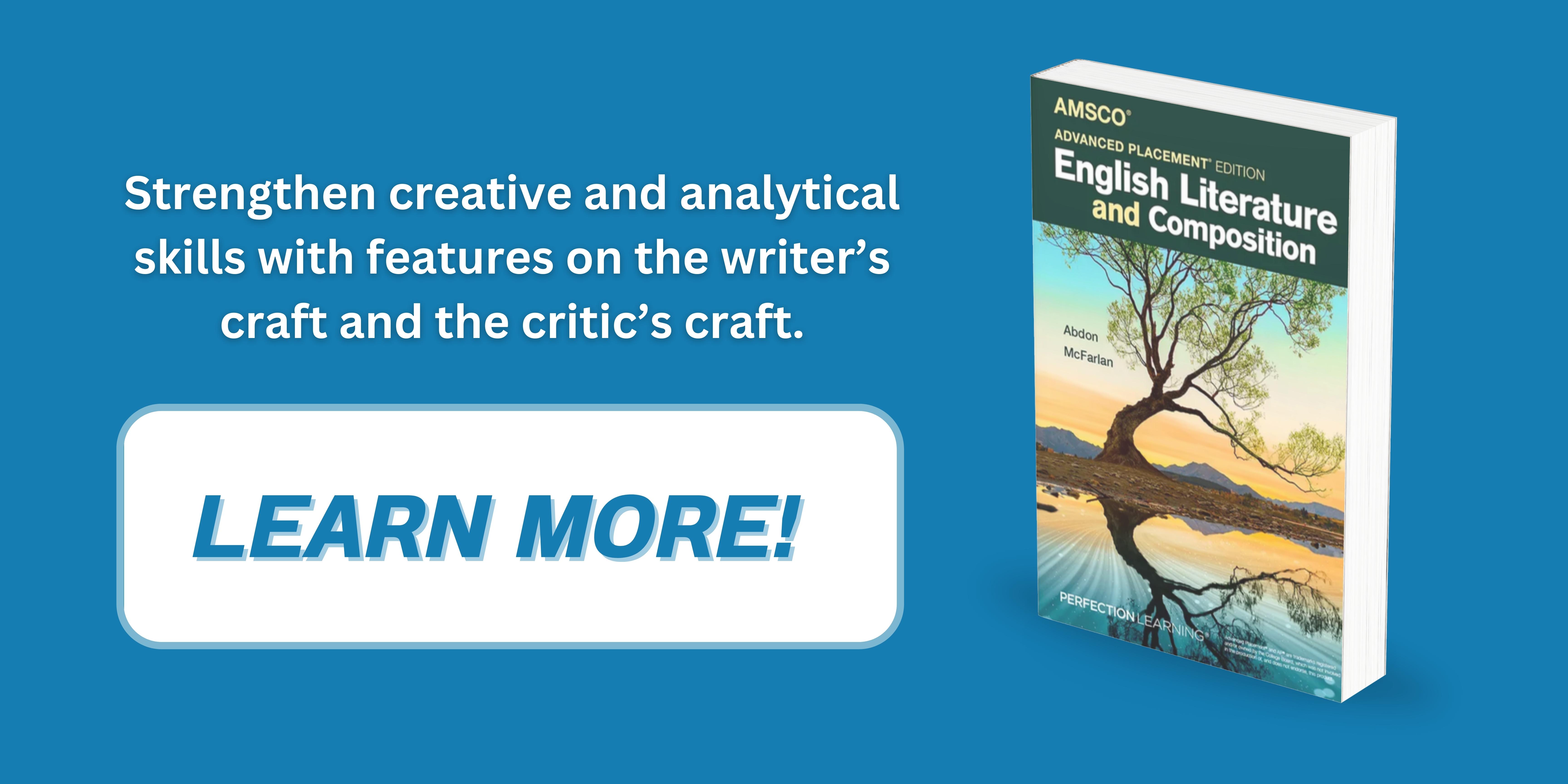We are all constantly practicing the skill of character analysis. I remind my often insecure students of this fact before we dive into a difficult text. We are constantly asking ourselves questions like—Why did I just say that to my mom? What motivated my friend to get back with her jerk boyfriend? What is important to me when I’m picking a college? Why is my teacher in such a terrible mood?
The best prose analysis essays dive into the whys behind observable behaviors rather than just describing the features of a text. Our students bring a wealth of skills and knowledge into the classroom that we can tap into. Even students who are not “traditional” AP students can often have keen insights into character choices. I teach at a school with open enrollment for AP courses, and each spring I actively encourage eleventh-grade students from on-level English to join us. I find that pushing my students to analyze what we call in my classroom character layers allows any students to connect their real-life experiences to literature analysis.
Character Layer Analysis helps students dive into the undercurrents of a text and avoid plot summaries. Character analysis begins with direct or indirect characterization, including what we see a character say, think, or do. Then, I lead students through a series of questions while we complete a graphic organizer.

As they answer each question, I drive them back into the text. What evidence gave you that clue? By helping students spiral into the reasons behind character choices, students can write more insightful and defensible claims. I tell my students—if you find yourself in a web of summary, start your next sentence (Character’s name) values ______________. Or (Character’s Name) believes that _______________. Using the character layer terms positions students toward analysis rather than paraphrasing.

I teach in a diverse school where students of varying abilities and skill sets are welcome in my course. In my experience, this strategy helps make the somewhat daunting task of character analysis more approachable and familiar to students of all levels. I am hopeful this approach will be beneficial for you too as we invite more students into our space and scaffold them into success!
Clair Antoon-Newton has been an educator for El Dorado High School for the last ten years, teaching AP Literature for the last eight. She loves mentoring new teachers, and she works as the lead mentor for her campus. Additionally, she is an adjunct English instructor for South Ark Community College. She has served as an AP Reader, a Table Leader for the Arkansas AAIMS Mock Reading, and this past summer was a panelist on the AP Standard Setting Panel.






